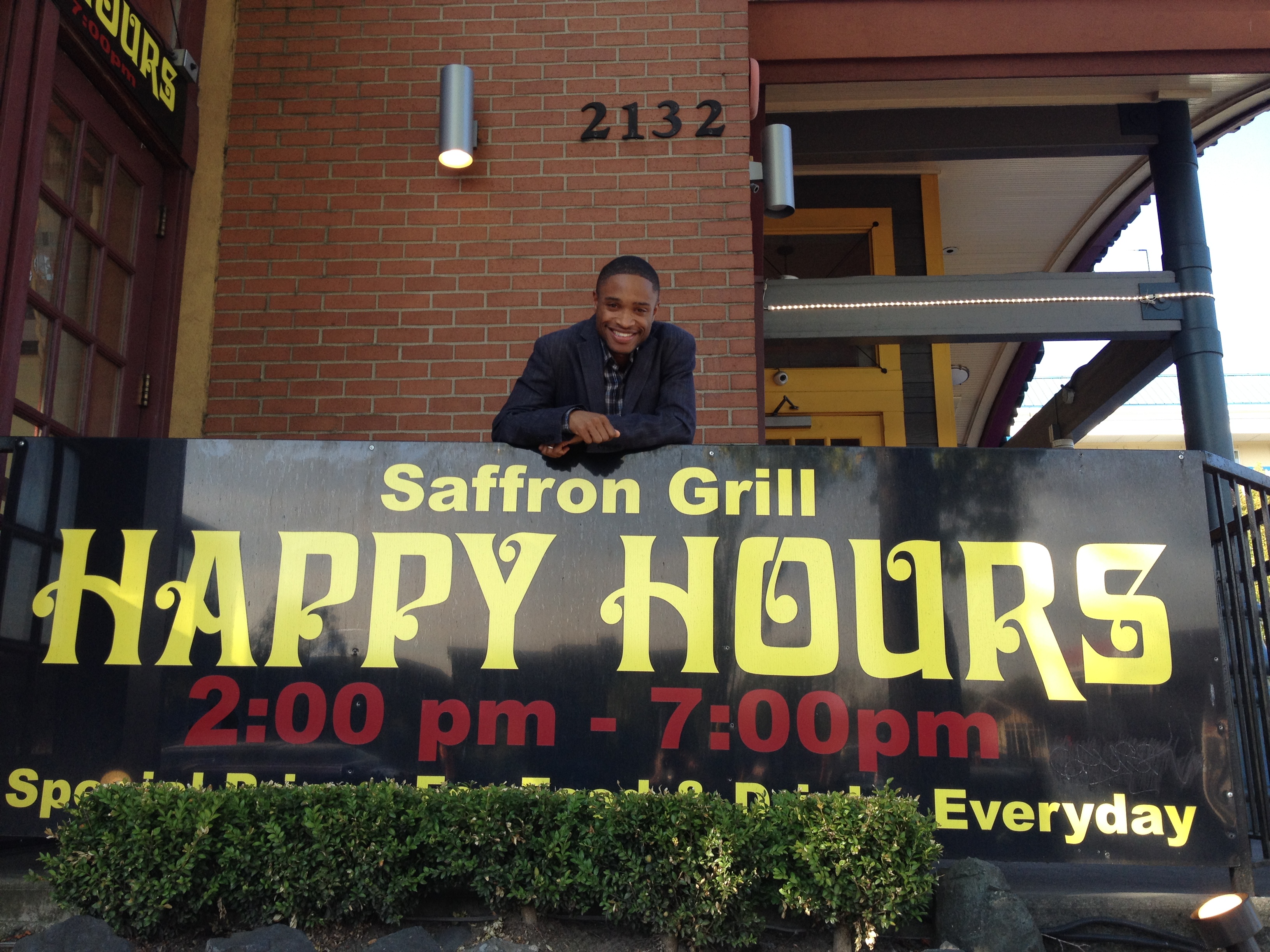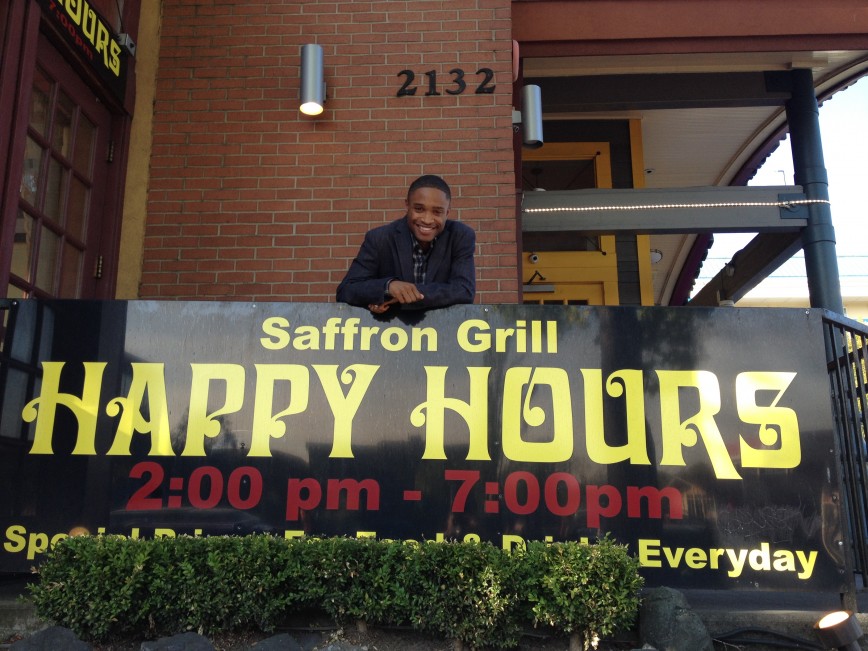
“Life is not about how many breaths you take, but about the moments that take your breath away.” – Maya Angelou
The quality of life is not measured in how long we live or how much we have. It is measured in how alive we feel while we are here.
Life is made up of many years.
Years are made up of many days.
Days are made up of many hours.
Hours are made up of many minutes.
Minutes are made up of many moments.
But none of those moments matter if we are not present to experience them.
The greatest experience we can have in life is an in-body experience—meaning we are fully present in the life that is here and now.
As a workaholic, despite my success, the number one thing that was taking me out of the moment and now allowing me to enjoy my success, was work. My mind was always on work whether it was the weekend, I was with my family or friends, or on vacation.
I still believe in hustling, but I want to hustle smarter. Work is my access to creating change in the world and I love what I do, but I also love other things—people, hobbies, TV shows, sports.
The patience of my wife and the arrival of my daughter has forced me (in a good way) to:
– redesign my life,
– get my priorities straight (family first),
– put first things first (meaningful action),
– cut the fat (wasted time & energy),
– be more productive in less time (efficiency),
– do one thing at a time (focus), and
– learn how to simply be happy here and now (presence)
Though my business has afforded me more financial freedom and time freedom, I didn’t have more happy hours. That’s my new metric for success and every day there are 24 opportunities to create and have a happy hour.
Many people say they want more financial freedom.
We say things like:
– “If I was rich I would…”
– “Wait ‘til I get my money right.”
– “Get rich or die trying.”
– “Cash rules everything around me.”
– “If I won the lotto…”
– “Cash is king.”
– “Money talks.”
– “Money is power.”
But even if you gave an individual all of the money in the world, that wouldn’t guarantee their happiness either. What we really desire is not just more money. We really desire more happy hours.
We believe that more money will lead to more happiness because we will be able to pay for experiences and things that make us happy that we can’t afford right now because of our other financial obligations.
But there are people with lots of money who are unhappy and there people with little bits of money who are extremely happy.
How is that?
Many people say they want more time freedom.
We say things like:
– “I wish there were more hours in the day.”
– “I wish I had more time.”
– “There is never enough time.”
– “Time flies.”
– “Time is against us.”
– “Life is too short.”
But even if you give an individual all the time in the world, that wouldn’t guarantee their happiness. What we really desire is not just more time. We really desire more happy hours.
We believe that more time will lead to more happiness because we will be able to do all of the things that we don’t feel we have the time to do right now because of our have-tos and hate-tos.
But there are people with lots of time on their hands who are unhappy and there people with little bits of time who are extremely happy.
How is that?
Happy hour has traditionally meant an unhappy time after work.
But that space is perhaps one of the biggest misnomers in the world. The traditional happy hour is often used to drown out unhappiness in alcohol which creates the illusion of being happier rather than generating genuine happiness in our lives.
This space usually occurs between 5-7pm after work on weekdays. The connection is that work or how we work is one of people’s greatest source of unhappiness. On top of that, it takes up a majority of our waking hours and the core of our life.
Work is the mediator between time and money. Employees sell their time to employers in exchange for money. We say we’re working for our families. We are willing to do things that make us unhappy to hopefully make those we love happy later on with the money we earn from working.
But oftentimes, work ends up taking us away from the people we love and are happiest with rather than bringing us closer. Even those who only work 40 hours a week return to those they love lifeless after a day’s work.
The greatest disease in the world is Always Wishing We’re Somewhere We’re Not.
This disease takes us out of the moment, no matter how good our life is. The grass is always appears to be greener on the other side. We may reach a certain level of wealth and while we’re better off relative to where we were 5 years ago, now our comparison group is different and we feel the need to compete and compare. Or we have distractions that take us out of the moment. When we’re at work, we wish we were at home and when we’re at home, we’re thinking about work.
If someone asks you “What time is it?” the answer will always be “Now.” And if someone asks you “Where are you?” the answer will always be “Here.” Here & Now is really all there is, but our mind tends to be future-focused on ideas like success (i.e. I’ll be successful when…) or past-focused on certain unmet expectations (i.e. I wish I would have…). The present moment has so many escape routes from technology to gossip to rumors of war to email and they are preventing us from truly experiencing and enjoying life right now.
A happy hour is a space and time you were intentional about.
Being intentional means that you chose to spend your time in this way. You didn’t have-to. You wanted to. And while there a things in life that we feel like we have-to do, each of us has the power to redesign our lives to reduce the number of have-tos and increase the number of want tos.
Rather than saying “Have a nice day!” which pushes off the responsibility to external factors, why not say “Create a great day!” which puts the owness back on us. In order to do that, we have to appreciate what we have, being present where we are, and redefine what fun means to us.
When you want to do something, you’re happy to do it.
But somehow, we end up living our lives unintentionally. Somehow we all spent 168 hours last week. The question is, did we spend it in the way we wanted to. Oftentimes, we give up our power and let life happen to us and we spend all of our time reacting instead of being a proactive part of the creation process.
Every day, we have the power to make thousands of choices. And any choice we don’t make for ourselves, we allow someone or something else to make for us. When we do that too often, we feel like our life is at the whim of fate and that we have no control in the direction of our destiny.
It’s hard to be happy when you feel like you don’t have a choice. And even if you have a choice, the options appear to just be A, B, C, or D.
You have the power to create new possibilities and ways of living that align with who you are and what you want to do and have.
It also means redefining when fun can happen.
A happy life can’t be restricted to weeknights and weekends. We can’t expect to be unhappy for 5 out of 7 days of our life and have a happy life overall. That equation doesn’t work. Happy hours can occur before work, during work, after work, and on weekends.
Most people die when become adults. That’s why so many spiritual text remind us to “be childlike.” Adulthood is associated with overwhelming responsibilities, hard work, no time for fun, security, stability, doing what others are doing, and and doing things you don’t want to do. As adults, we forget how to have fun and enjoy life.
We don’t have to take these roundabout ways to start living the life we want.
You don’t have to wait until you get rich.
You don’t have to wait until you reach retirement and expect to have more time.
If wealth was measured in happy hours, the Forbes list would change.
How you choose to spend the next 60 minutes is all that matters.
You can spend it how you want to…or not.
You can be fully present…or not.
You can appreciate where you are right now…or not.
We tend to only honor and celebrate the BIG moments in life like births and birthdays, graduations, and weddings, but those far and few between. Every day, every hour, there are things to celebrate about life and those little things will add up the more we appreciate them. That’s what appreciate means—to increase in value.
If we stop chasing our dreams and just live them, if we stop pursuing happiness and create it, if we stop trying to get rich and recognize the richness that’s already here, if we enter every hour with the intention of it being a happy hour, I’m certain that we all find that at the end of the day, we’ve lived a happy life.
This is a philosophy I haven’t perfected, but I am wholeheartedly practicing and I look forward to sharing my experiments around success, work, family, time, and money with you in hopes that you have at least one more happy hour each week.
Wishing you more happy hours,
Jullien Gordon






